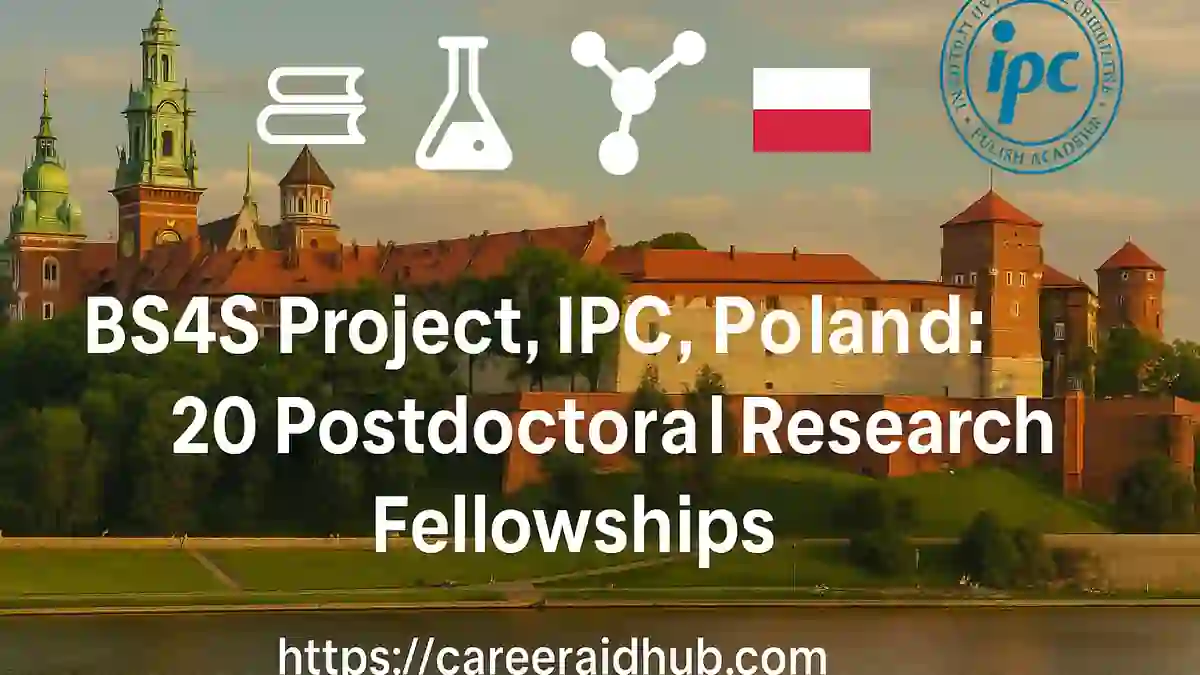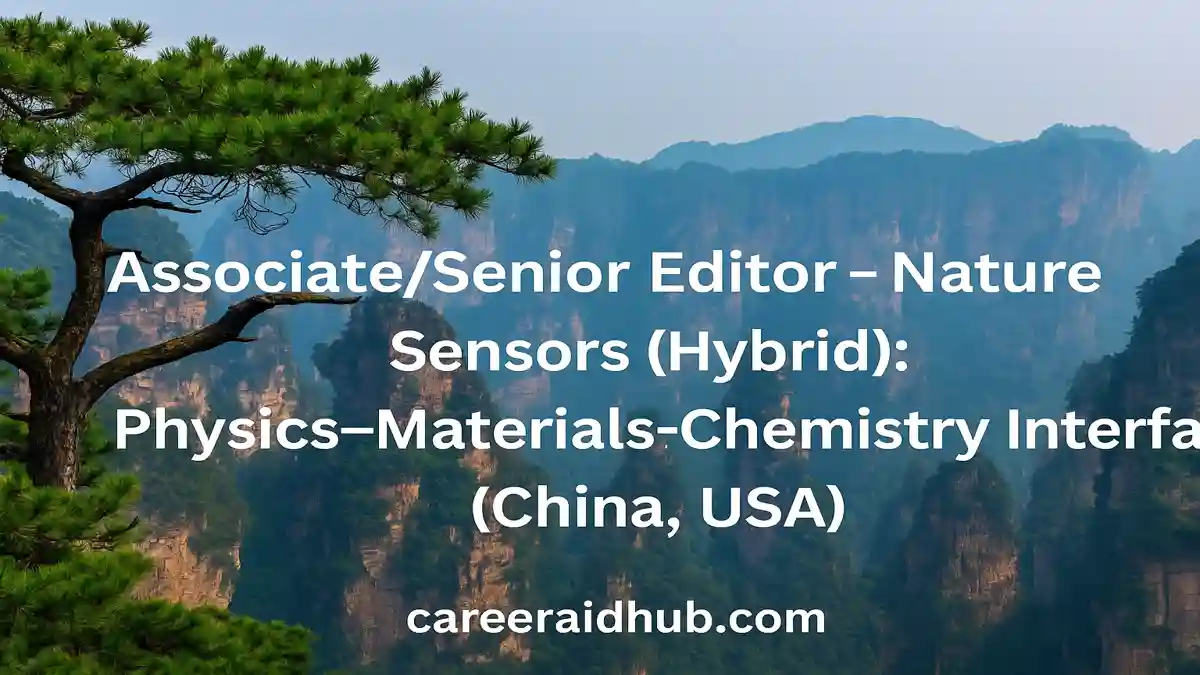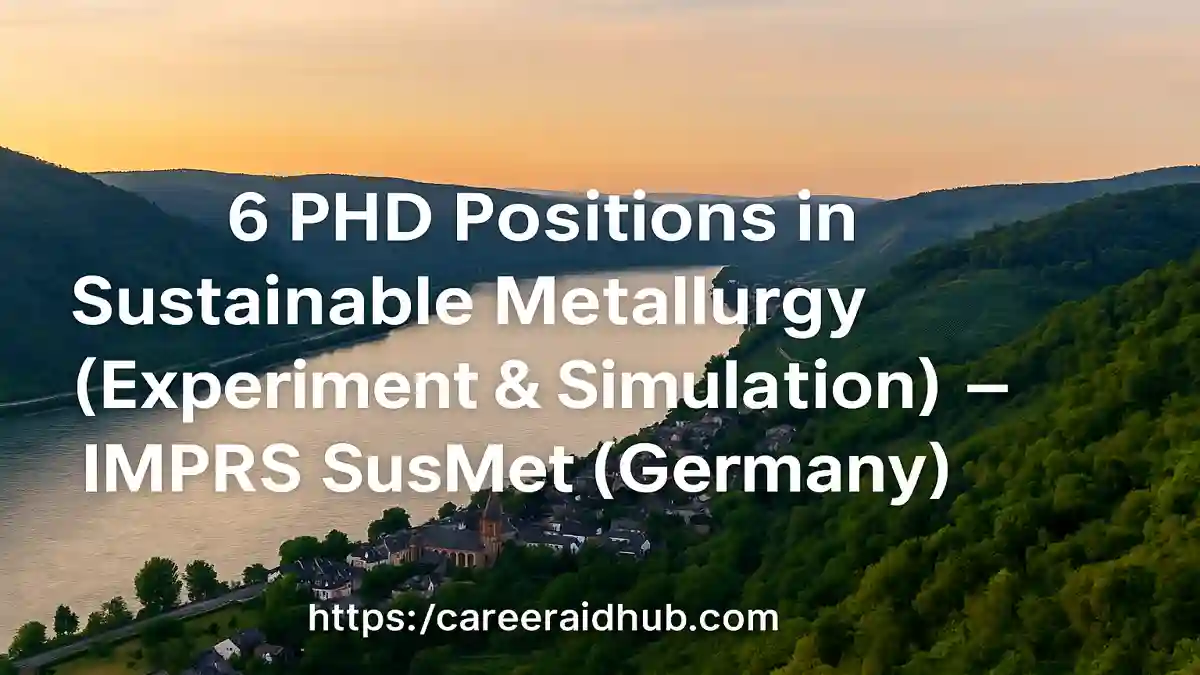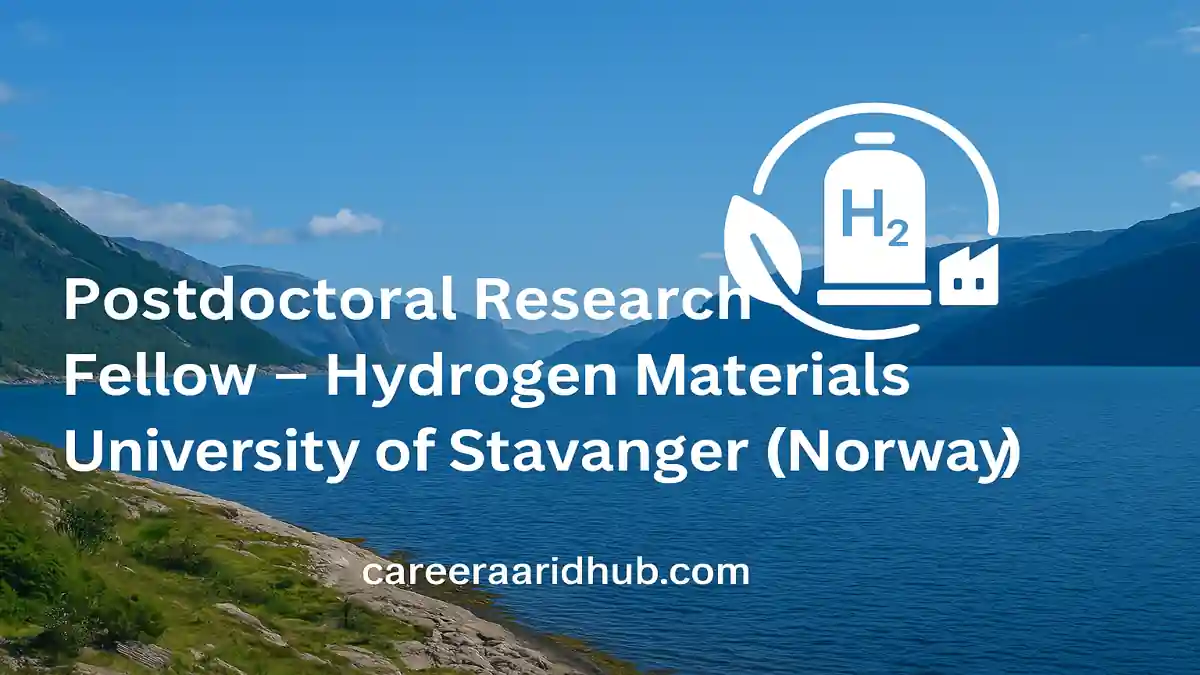The Beyond Amphiphilicity (BEAM) Research Training Group (RTG 2670), hosted by Martin Luther University Halle-Wittenberg (MLU) together with the Leibniz Institute of Plant Biochemistry (IPB) in Germany, offers attractive open positions including a Junior Research Group Leader role.
The positions focus on cutting-edge research in soft matter, self-organization, and novel noncovalent interactions in material science. If you are interested in polymeric materials, self-organizing systems, or advanced experimental techniques, these opportunities may suit you.
What Are the Open Positions
Junior Research Group Leader with Scientific Tasks
- Supervisor / Employer: Martin Luther University Halle-Wittenberg, Faculty of Natural Sciences II
- Role Type: Full-time, fixed-term position until the end of 2030
- Research Focus: Polymeric and self-organized materials; structure and dynamics studied using modern experimental methods
- Responsibilities: Lead a research group, manage an independent project with own budget; potentially recruit doctoral researchers once the group is established; opportunity to acquire teaching experience useful for future professorships.
- Salary & Level: Up to salary group 14 TV-L, depending on meeting personal requirements
- Eligibility: As required by third-party funding, the call is open only to women.
Prior and Other PhD Positions (Expired / Filled)
The BEAM RTG has hosted several PhD positions in related fields, such as:
- (Bio)chemistry projects, combining molecular biology, computational chemistry, and synthetic chemistry
- Research on the self-organization of amphiphilic molecules
- Investigations of molecular interactions, modeling, and structure–function relationships in soft matter systems
These earlier calls demonstrate the interdisciplinary, experimental, and computational nature of BEAM’s research environment.
Key Highlights & Benefits
Research Excellence and Innovation
BEAM pushes the frontier beyond classic amphiphilicity. Researchers are exploring how multiple non-covalent interactions (hydrogen bonding, hydrophobic effects, electrostatics, etc.) drive self-organization in soft matter. These are foundational topics with implications for materials science, biochemistry, and nanotechnology.
Infrastructure & Academic Environment
- Access to state-of-the-art experimental facilities in materials synthesis, spectroscopy, microscopy, etc.
- Collaboration between IPB and MLU, giving access to both specialized plant biochemistry labs and broader natural sciences.
- Exposure to modern experimental methods in dynamics and structure of soft and polymeric materials.
Career Development
- As a Junior Research Group Leader, you gain leadership experience, budget control, and the opportunity to mentor doctoral researchers.
- PhD positions provide supervision, structured training, and the flexibility to gain skills across multiple disciplines (experimental, computational, modeling).
- TheBEAM RTG emphasizes equal opportunity, family friendliness, and career support for early-career researchers.
Compensation & Work Conditions
- Salary for the group leader position aligned with German pay scale TV-L (up to level 14)
- Fixed-term but with enough duration (until end 2030 for the group leader) to allow for planning and long-term projects
- Support for equal opportunities: diversity, women in leadership, family-friendly policies
Eligibility and Who Should Apply
- For the Junior Research Group Leader role: candidates with substantial research experience, ideally in materials science, polymer chemistry, soft matter physics, or related fields. Women only, per funding mandates. Good track record in experiments, ability to lead, secure funding, supervise others.
- For PhD roles (earlier cycles or future similar positions): applicants with strong Master’s degree (or equivalent) in chemistry, biochemistry, physics, computational science, or related disciplines. Skills in modeling, synthesis, or characterization are advantageous.
- Proficiency in English (reading, writing, and speaking) often expected.
- Foreign applicants: May need to have qualifications recognized per German standards; sometimes equivalency checks are necessary.
How to Apply
- Find the official job‐advertisementdocuments
For the group leader role, the BEAM website and the university’s administration link to English and German versions of the full job posting. - Prepare your application materials
Likely needed: cover letter or motivation statement; CV including publications and experience; proposal of research vision; references; documentation of relevant experimental/computational skills. - Submit before the deadline
For the group leader position, deadline is early October. Other earlier calls had deadlines or rolling review depending on when filled. Keep an eye on current listings. - Address gender equality and equal opportunity mandates
Since this particular call is open only to women, applicants should ensure eligibility under those terms and prepare accordingly. - Contact for queries
Usually the advertisement will list a contact person (e.g. from IPB or MLU) to answer detailed scientific or administrative questions.
- Find the official job‐advertisement
Why These Positions Are Worth Pursuing
- Scientific Impact: Research under BEAM advances understanding of how molecules interact beyond simple amphiphilicity; has broad applicability in materials design, biotechnology, and soft matter physics.
- Leadership Experience: The group leader role gives early-career researchers a chance to manage resources, people, and shape their own research agenda.
- Interdisciplinary Exposure: Projects often mix chemistry, physics, biology, computation — great for building a diverse skill set.
- Strong Institutional Reputation:IPB and MLU are well known in Europe for plant biochemistry, soft matter science, and molecular research.
Challenges and Considerations
- Fixed Termin-Term: The group leader position ends in 2030, so planning for continuity or follow-on funding will be necessary.
- Strict Eligibility: This particular call requires applicants to be women, per funding rules. Not all qualified researchers will be eligible.
- High Expectations: Leadership roles require existing research output, ability to lead, secure and manage budgets, possibly supervise others.
- Competition: BEAM is an attractive RTG, so expect many strong applicants globally.
Tips for a Strong Application
- Highlight prior experience in experimental or computational work relevant to self-organization, polymers, or soft matter.
- Emphasize leadership, management or mentoring experience (if applying to group leader) or potential for it.
- Clearly articulate what novel contribution you aim to bring beyond existing literature, especially in non-covalent interaction patterns.
- Demonstrate ability to collaborate across disciplines: if your work combines physical chemistry, modeling and structural dynamics, show examples.
- Include clear and polished writing; scientific clarity; also, ensure documents are complete and follow any language (German/English) requirements.
Key Details at a Glance
Feature | Details |
Program / RTG | BEAM: Beyond Amphiphilicity – RTG 2670 |
Institution(s) | Martin Luther University Halle-Wittenberg & Leibniz Institute of Plant Biochemistry |
Open Position(s) | Junior Research Group Leader; earlier PhD / doctoral researcher roles |
Focus Areas | Polymeric / self-organized materials; noncovalent interactions; experimental / computational methods |
Duration | Group leader until end of 2030 (PhD positions vary) |
Salary / Funding | Up to TV-L 14 for group leader; PhD roles per German pay scales (TV-L E13 etc.) |
Eligibility | Women for the specific group leader call; PhD roles earlier for any qualified candidates with relevant degrees |
Deadline | Early October for group leader; past deadlines vary – check current listings |
Final Thoughts
The BEAM open positions represent a compelling opportunity for early to mid-career researchers who are passionate about advancing soft matter science, especially in the realm of molecular self‐organization and noncovalent interactions. The group leader role offers a chance to lead, influence, and design bold research, while PhD roles provide hands-on training and interdisciplinary growth. If your research interests align, preparing a focused, well evidenced application could make all the difference.
Call to Action
If you meet the eligibility criteria and are excited by the science, review the official job announcements right away, prepare your application materials thoroughly, and submit before the deadline. Check the BEAM RTG 2670 Open Positions page frequently, because new opportunities may be announced. Good luck with your application.
Official Link: https://beam.uni-halle.de/open-positions/
Frequently Asked Questions (FAQs)
The BEAM Research Training Group focuses on studying soft matter, polymers, and self-organization through advanced experimental and computational methods.
The open positions are hosted at Martin Luther University Halle-Wittenberg in collaboration with the Leibniz Institute of Plant Biochemistry.
Qualified applicants with strong backgrounds in chemistry, biochemistry, physics, or related fields can apply, depending on the specific role advertised.
BEAM offers PhD positions, postdoctoral opportunities, and a Junior Research Group Leader position with responsibilities in research and leadership.
Salaries follow the German public service scale (TV-L), with doctoral positions typically at E13 level and leadership roles up to TV-L 14.
The Junior Research Group Leader position runs until the end of 2030, offering long-term career development opportunities.
Yes, international candidates are encouraged to apply, provided their qualifications meet German academic standards.
Applicants must submit a CV, cover letter, research proposal, transcripts, and reference letters through the official BEAM website.
Research focuses on noncovalent interactions, polymeric materials, molecular self-organization, and interdisciplinary approaches to soft matter science.
BEAM provides access to state-of-the-art facilities, interdisciplinary mentoring, competitive salaries, and excellent career advancement opportunities in materials and life sciences.










